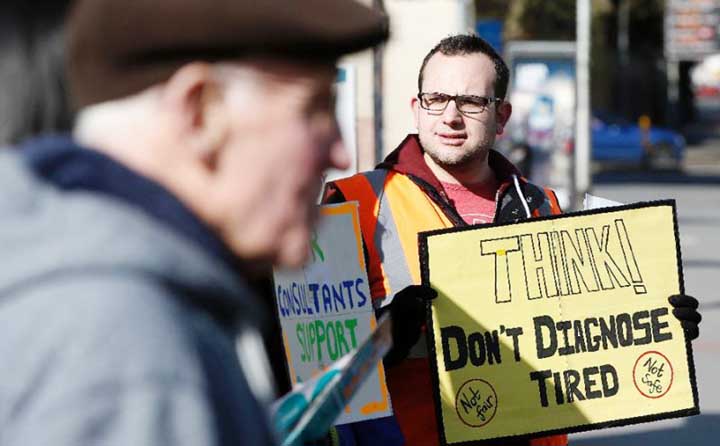
Junior doctors in England started their first ever all-out strike Tuesday in a bitter, deadlocked row with Prime Minister David Cameron’s government over pay and conditions.
The strike will have a major impact on the National Health Service (NHS), which employs thousands of junior doctors-graduates with years of experience who have not yet completed their professional qualifications.
While there have been several recent stoppages, this one will affect hospital emergency care units such as accident and emergency and maternity units for the first time, although senior doctors and nurses will still be on duty.
Nearly 13,000 operations and 113,000 appointments have been postponed around the period of the strike, which runs from 8:00 am to 5:00 pm (0700 GMT to 1600 GMT) on Tuesday and Wednesday.
“Anything unprecedented like this places a significant pressure on the NHS,” Anne Rainsberry, national incident director for NHS England, told BBC Radio 4.
“The NHS has done everything it possibly can to mitigate that, but you can never say that it has mitigated it completely,” she added.
The British Medical Association (BMA), the doctors’ trade union, has not ruled out a permanent strike or mass resignations as a way of trying to force the government’s hand.
One junior doctor, Ben White, resigned live on national television Monday to work on a legal challenge to the government’s position, citing “understaffing and underfunding”.
“I feel that I’ve got an obligation to do that on behalf of my patients,” he said. “We’ve been backed in a corner.”
The taxpayer-funded NHS, established in 1948, is one of Britain’s most respected institutions, providing largely free medical care.
While it has been protected from austerity cuts to public services under Cameron, experts warn it still faces increasing financial strain due to factors like rising treatment costs and an ageing population..

